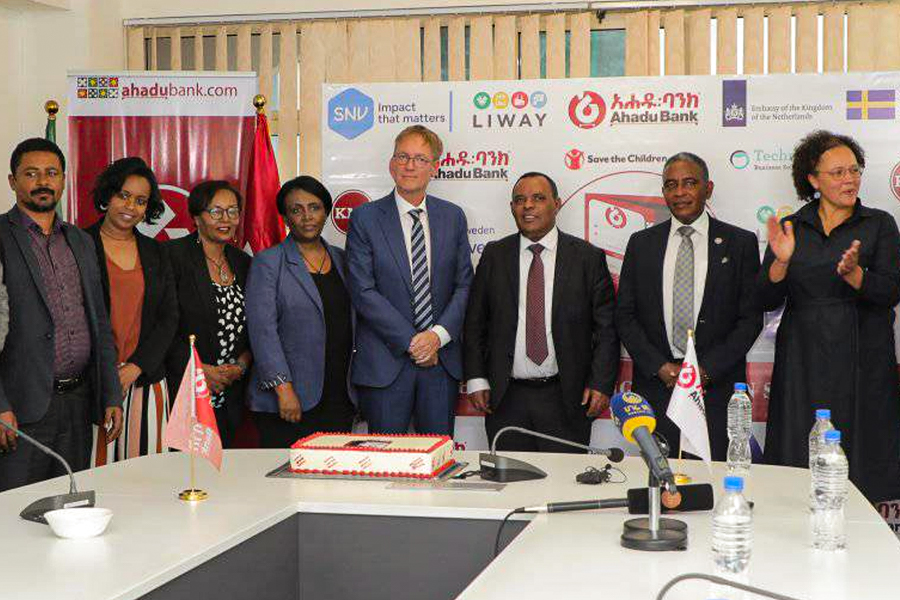
To bridge the financing gap in micro, small, and medium enterprises (MSMEs), Ahadu Bank has launched an uncollateralised digital lending platform. Dubbed 'Mahder,' the new system enables credit registers, financial record keeping and reporting, and account opening. It was developed in partnership with K.M. Dastur & Company KMD), APSIS and SNV. The absence of digital and credit infrastructure, limited data, an imbalance of risks and costs, insecure transactions and collateral registries, and a lack of insolvency procedures are cited as primary reasons for financial institutions' reluctance to support MSMEs. In its press briefing at its headquarters last week, Ahadu Bank revealed a 25pc allocation from its credit portfolio to MSMEs, recognising their contribution to the economy. The strategy also includes an arrangement with insurance companies for risk management during defaults. A World Bank study estimates the global financing gap for MSMEs to be one trillion dollars, increasing to 2.6 trillion dollars when including informal businesses. MSMEs make up over 90pc of all firms and account for 70pc of total employment and 50pc of GDP worldwide. The SME finance gap now stands at 5.7 trillion dollars. There are an estimated two million MSMEs in Ethiopia alone and according to a 2021 UNDP report, only 1.9pc of small enterprises have access to loans or lines of credit, compared to six percent for micro-enterprises and over 20pc for medium-sized enterprises. The Cooperative Bank of Oromia (CBO) ushered in the first digital non-collateral lending platform two years ago dubbed 'Michu', in partnership with Kifiya Financial Technology. The Bank was able to disperse 946 million Br in loans to farmers through cooperative unions and MSMEs, reaching more than 100,000 customers. Several further initiatives have been taken to improve the financial gaps of MSMEs. Last year, the Central Bank partnered with financial technology firms to design and execute a regulatory framework for moveable collateral and non-collateral loans that address Micro, Small and Medium Enterprises.
[ssba-buttons]